Ablr, Sinisana, Wahed Set Eyes on Pushing Malaysia’s IDE Forward
MDEC shares a conversation with three fast-growing companies that have made Malaysia as a springboard for their global success

- ABLR is on a mission to revolutionise Islamic financial services, providing access and affordability to underserved communities in Malaysia and beyond.
The digital economy is transforming and developing at an unprecedented rate, with Islamic digital economy (IDE) being no exception. Malaysia and ASEAN have seen considerable growth in this area since their inception, with the awareness of such systems expanding from a localised to a global level.
Ablr, a fintech company, has chosen Malaysia as the site of its operations due to the country’s world-leading Islamic fintech ecosystem and robust regulatory framework. As the number one ranked nation in the Global Islamic FinTech Index, Malaysia has demonstrated a clear commitment to fostering innovation in the Islamic finance industry.
Ian Ow, Founder and Group CEO of Ablr, says that the pandemic has brought issues regarding environmental, social and governance (ESG) and sustainable development goals (SDGs) to the fore, and this has helped further surface how Islamic principles coupled with digitalisation efforts can be a huge boost to achieving these ESG and sustainability goals and outcomes.
Leverage on Malaysia’s robust ecosystem
As a fintech company that provides shariah-compliant products that seek to fill the gap for the unserved and underserved Muslim population globally, Ablr leveraged on the maturity and strength of Malaysia’s ecosystem.
The Malaysian government and MDEC have been instrumental in offering a supportive environment for his venture in the country, says Ian. "I am grateful for being able to raise capital from Dana Penjana Nasional, a government fund, to further our mission in providing honest financial products that help improve people's lives through the support of Penjana Kapital."
Solid government commitment
The Malaysian government has also demonstrated its commitment to supporting the development of Islamic finance and the digital economy by focusing on these key economic growth areas with MDEC's dedicated IDE unit, which will create a strong foundation for further stability and expansion.
With Penjana Kapital administrating and facilitating the deployment of the Dana Penjana Nasional fund, the Malaysian government has been supporting the companies to grow their innovation.
Ablr is now focused on rolling out various digital product offerings to underserved and unserved households and micro-small medium enterprises (MSMEs) in Malaysia and thereafter exporting and localising these for other Muslim markets. The company looks to positively impact Malaysia and beyond by accelerating the reach and impact of Islamic financial services that help address financial inclusion gaps and support sustainable development goals.
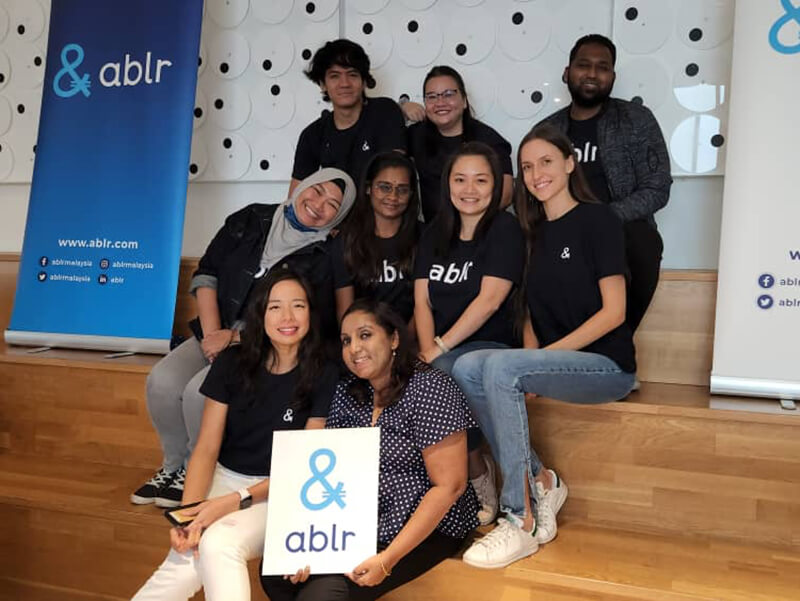
One for the album… Ablr looks to positively impact Malaysia and beyond by accelerating the reach of Islamic financial services.
Media and tourism
With a strong presence in Islamic finance, halal food, and fashion already evident throughout the country and region, Ian believes that two other areas, media and tourism, have immense potential for growth in the future.
"Awareness is key in promoting the development of the global Islamic economy. Media is a powerful tool to help educate and share more information through modern media formats such as television, movies and even music. That awareness can be invigorated through experiences and real-life interactions through tourism to Islamic countries and cultural exchanges with the Muslim population," he concludes.
- SINISANA brings transparency and sustainability to the IDE, helping businesses serve the Muslim market with products that are produced responsibly.
The IDE is making its presence felt as recognition grows of its crucial part in our region. Solutions within the IDE spectrum are becoming more diverse, offering a range of services outside the traditional realm of Islamic finance tools, says Jonah Lau, Co-founder and Chief Technology Officer of Sinisana.
The Islamic Finance industry has long searched for alternative operations methods that adhere to Shariah regulations. Now, these technology-enabled solutions are being developed for multiple applications beyond banking and finance.
With tailored platforms now catering to a broad range of services, it is becoming clear that IDE is rapidly evolving into something much bigger than first imagined.
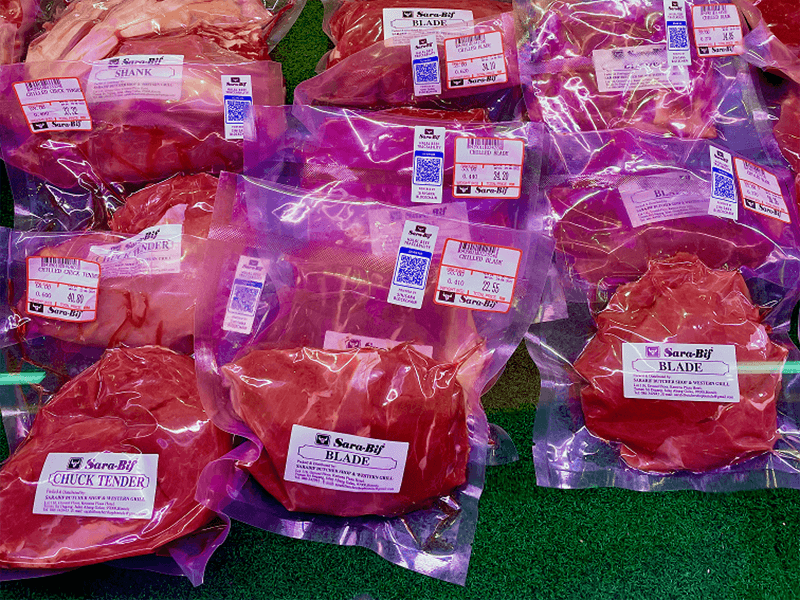
Blockchain-traceable halal beef on supermarket shelves.
Provenance and accountability
Sinisana is devoted to making a meaningful and lasting impact in IDE locally and beyond. Its foremost priority is ensuring integrity throughout all stages of production – from supplier networks to customer experience. “A key focus area for us has been utilising our traceability platform to support various ESG initiatives by businesses. We believe this is where our tools and platform can help more companies serving the Muslim market tap into a greater global wave of consumer demand for products and services that have been produced sustainably. There is already much overlap between halal standards and sustainability goals, and we believe this is the next natural evolution of IDE.”

Respected globally
Jonah says: “Malaysia is a global leader in the halal economy, and its halal certification is well-regarded by Muslim consumers everywhere. This provides a strong foundation for IDE to innovate and flourish from Malaysia to the world. There is also a high level of digital adoption by consumers and businesses within Malaysia that facilitates digital innovation. In addition, non-Muslim consumers in Malaysia are also open to innovation within the IDE that benefits them.”
He asserts that MDEC has been a pillar of support ever since Sinisana began operations at the end of 2019. There have been various MDEC programmes that have benefited the company in gaining exposure in the market.
“The new Malaysia Digital push has also lowered the barrier of entry compared to the previous MSC Malaysia initiative, making it much more convenient for digital economy companies to obtain support. MDEC’s specific IDE division has been extremely supportive of Sinisana’s growth by linking industries to tech startups.”
To further progress, he says the Malaysian government and government agencies should be more receptive towards homegrown solutions that have been proven in the market. Agencies should be focused on more than just the big-name or imported solutions that are often very costly and result in a technology trade imbalance. He added: “As a global leader in the halal economy, government agencies need to be cognizant and recognise the potential of local Malaysian Islamic digital economy solutions as our next key export to the world.”
- Driven by advanced AI and latest tech tools, Wahed aspires to build a next-generation robo-advisor platform
IDE has evolved greatly since it began, driven by major shifts in both market dynamics and customer behaviour. The Covid-19 pandemic has accelerated this process, as customers have become more knowledgeable and aware, while making greater use of online technologies spurred by higher mobile penetration rate.
Interestingly, the growth in the robo-advisor market has also increased despite the pandemic onslaught, Juliana Abu Bakar, Country Head and CEO of Wahed Malaysia.
These changes have been particularly pronounced in Malaysia and other ASEAN countries, leading to a more competitive and dynamic environment for businesses operating within the region’s IDE.
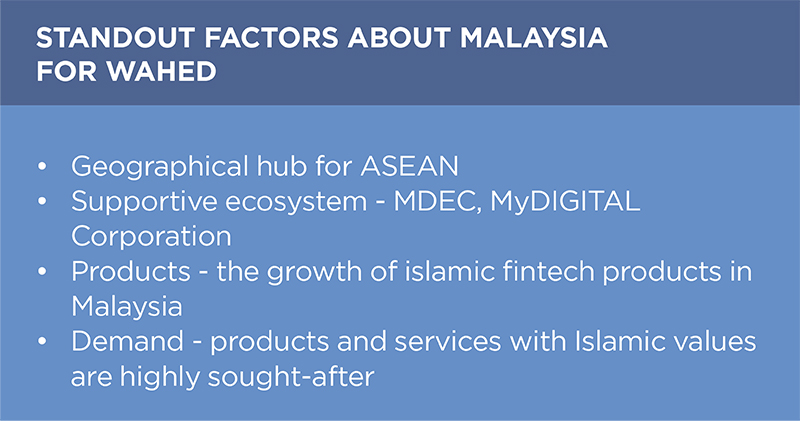
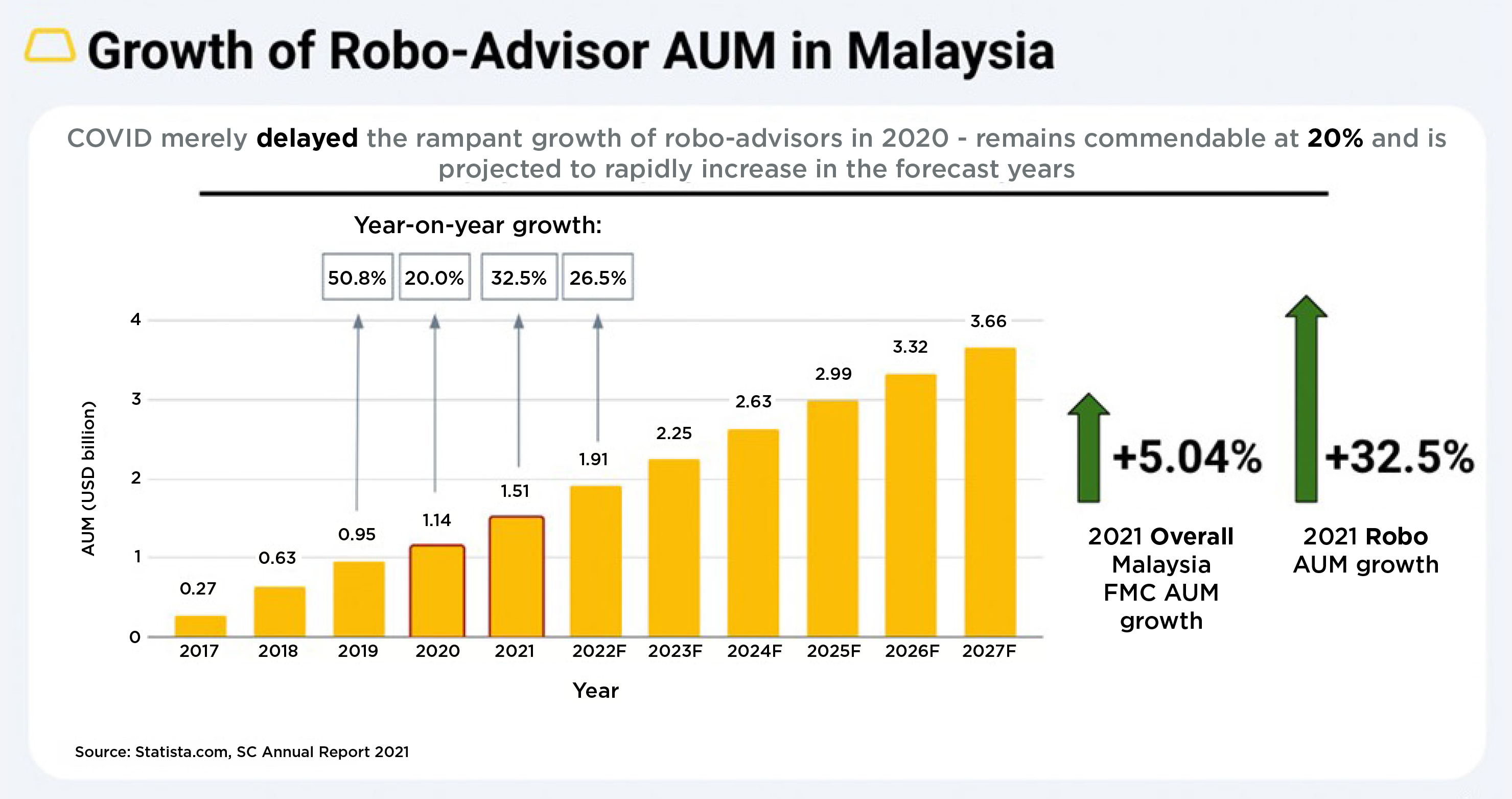
With IDE rapidly evolving, the Malaysian government and MDEC have an active role to play in stimulating growth within this sector, says Juliana.
“Further to MDEC’s efforts to bring VCs to Malaysia and create opportunities for local startups while encouraging MNCs to invest and make Malaysia a regional hub for knowledge transfer, collaboration can be encouraged by building it with foreign countries.”
For established companies, MDEC could focus on building an ecosystem which helps build global prominence for Malaysian companies, she adds.
Ultimately, through a holistic approach of providing stronger infrastructure development coupled with targeted awareness-raising campaigns, both investors as well as companies in the IDE will benefit from a real competitive advantage with strong potential for positive long-term growth.
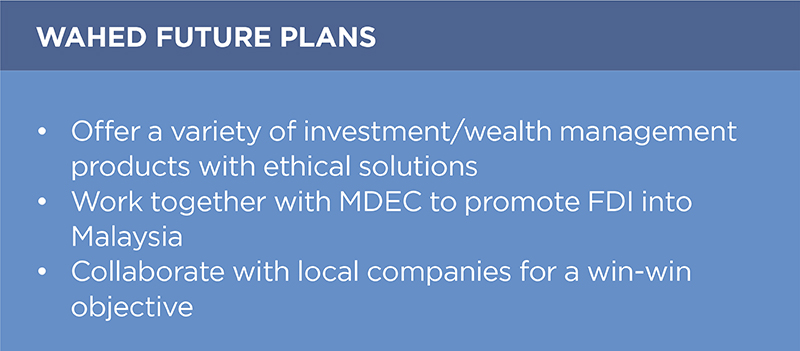

IDE offers numerous untapped yet highly prospective sources for potential growth and development. Halal tourism is one such sector that could be extremely lucrative in some of the more religious countries and Muslim cultures in the ASEAN region. Education is also important, not just in terms of learning but, more importantly, teaching Islamic core values that promote an all-encompassing amalgamation of empathy, morality and social responsibility.
Last but not least, a wide range of possibilities are available to capitalise on the rising demand and interest regarding ethics-focused mainstream or social media platforms that promote Islamic awareness amongst users.
As such, these three key areas should certainly be taken into account going forward if we are to consider a sustainable long-term approach to growing the IDE across the ASEAN region, Juliana concludes.








